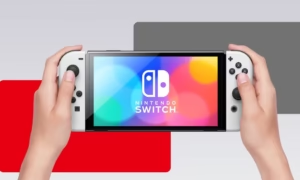The consolidation of gaming within the entertainment industry
We’re witnessing a unique moment in the history of the video game industry. Following an unparalleled period of expansion in 2020, experts predicted that the market wouldn’t be able to keep expanding at the same rate in 2021. In reality, several analysts initially predicted a minor fall in sales, but consumer spending on video games has proven to be resistant to the longer-term impacts of the COVID-19 pandemic; and the video game industry generated total revenues of more than $180 billion in 2021, an increase of 1.4 per cent in comparison to 2020.
With supply shortages and AAA releases delayed due to the pandemic, the market was expected to go through a recession period. “We started the year thinking it would be impossible for the market to match 2022,” says Tom Wijman, head of reports and forecasting at Newzoo, a market research firm specializing in the video game industry. “Yet, we realized that the market would grow again. If anything, this shows that the games market is definitely no longer the seasonal, hit-driven business it once was. New gaming content no longer means new games or new hardware – a new season pass is just as likely to drive revenues”.
A good example of this new focus on subscription-based games and season passes is the recent movements by Microsoft and Sony, who acquired Activision and Bungie respectively, two publishers that currently hold some of the most played subscription-based games in the world.
The pandemic, however, didn’t just impact the sales of the video games industry, but audiences on streaming platforms also got a big bump in the past two years. Twitch’s average concurrent viewers increased significantly in 2020 and 2021, and TikTok is reported to be testing a new desktop streaming platform to compete with Twitch.
Though future growth is unlikely to be as significant, research firm Newzoo expects that gaming revenues will reach an astounding $219 billion by 2024, establishing the video game market as one of the major sectors within the entertainment industry.
Emerging gaming trends
The video game industry is evolving at a rapid pace. Supply chain issues continue to afflict hardware, rendering consoles and PC gear unavailable. Gamers have been severely impacted, but video game publishers are striving to find the balance between exclusivity in smaller markets and catering to last-gen technology, which greatly impedes development progress.
Not only has technology been disrupted, but the very nature of gaming has been altered. Xbox Game Pass, dubbed the “Netflix of gaming”, alters how users access video games. The further popularization of gaming streaming has given birth to a new trend of “game watching”, with viewership on Twitch reaching a whopping 2.9 million concurrent viewers in 2022. And even the iGaming industry was heavily impacted by these new trends, especially with the rapid rise of esports; MOBA tournaments like Dota 2’s The International and first-person shooters events such as the ESL Pro League have emerged as extremely popular betting markets, particularly during the early stages of the pandemic, when real sporting events had to be suspended.
Furthermore, the rise of blockchain technologies, cryptocurrencies, and non-fungible tokens is also expected to cause major changes in 2022, with even Square Enix president Yosuke Matsuda declaring his support of using blockchain technologies in gaming, as the slow sales of popular AAA titles are leading developers and publishers to chase new forms of revenue and monetization.
Recent acquisitions
On January 18, Microsoft revealed intentions to purchase Activision Blizzard for $68.7 billion, an announcement that shook things up in the industry. Microsoft intends to save the company from its own internal instability following Activision’s multiple lawsuits and financial struggles. According to Microsoft CEO Satya Nadella, the agreement would “play a key role in the development of metaverse platforms.”
While Microsoft has stated that it intends to leverage its publishing skills to boost development in its gaming companies across all gaming platforms, many are questioning what this means for Activision’s titles on Playstation platforms. This acquisition may provide Xbox with more competition in its game catalogue.
To stir things up even further, following Microsoft’s announcement, Sony disclosed the acquisition of Bungie, the studio responsible for successful games like Destiny and Halo. This movement was seen by industry analysts as an attempt to increase competition against well-established titles like Epic Games’ Fortnite.
Even though Sony is still one of the gaming industry’s heavyweights, its development process is becoming increasingly archaic. The age of AAA games saturated with millions, if not billions, of dollars in development funding to be sold for a $50–70 premium is becoming highly unsustainable, which should help explain the Japanese company’s new interest in subscription-based gaming.
Nevertheless, this isn’t the only aspect that the leading companies in the industry are focusing on in 2022. With smartphone usage increasing exponentially year after year, mobile gaming is also one of the targets for these companies. As the industry is roughly divided between mobile games and classic console and PC-based games, any game developer who focuses solely on one platform is at a critical disadvantage.
Take-Two Interactive Software Inc. and Zynga Inc. are two firms aiming to profit on this expansion. Take-Two, the parent company of the Grand Theft Auto and Red Dead franchises, revealed intentions in January to buy mobile-games pioneer Zynga for $11 billion in cash and shares, which would put Take-Two in a privileged position in the market, with the prospect of bringing popular properties such as Grand Theft Auto and BioShock to mobile devices leveraging Zynga’s expertise









